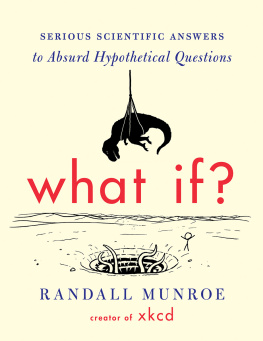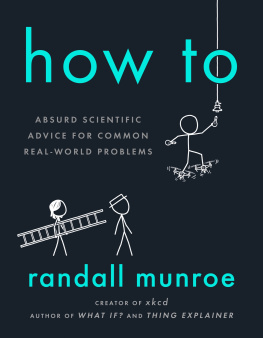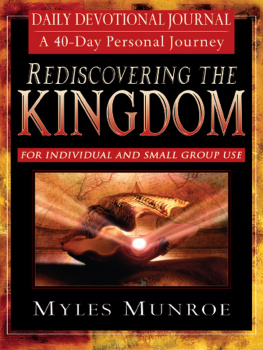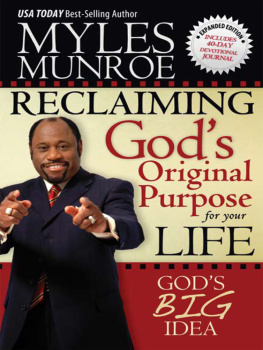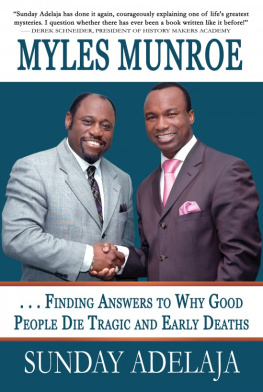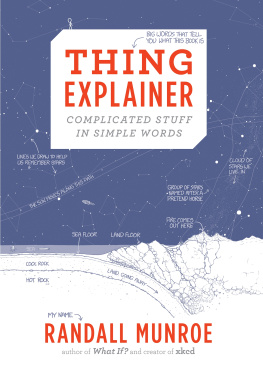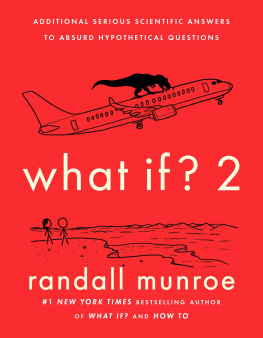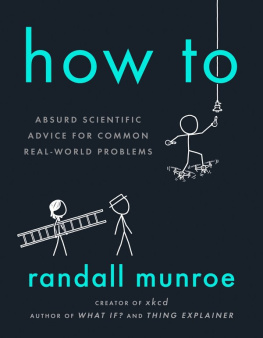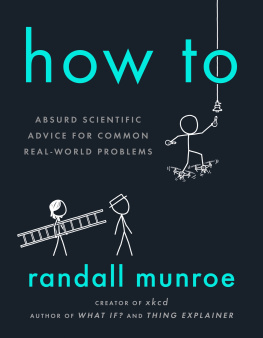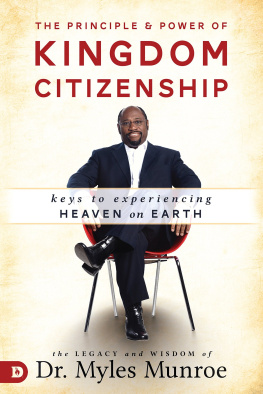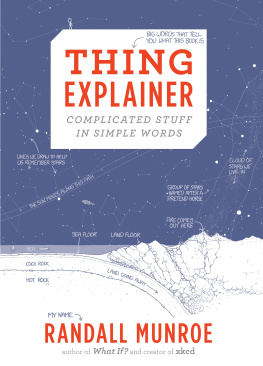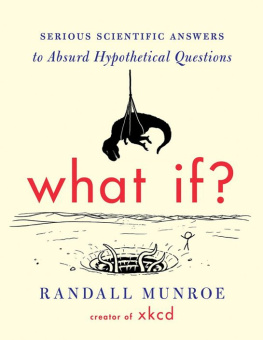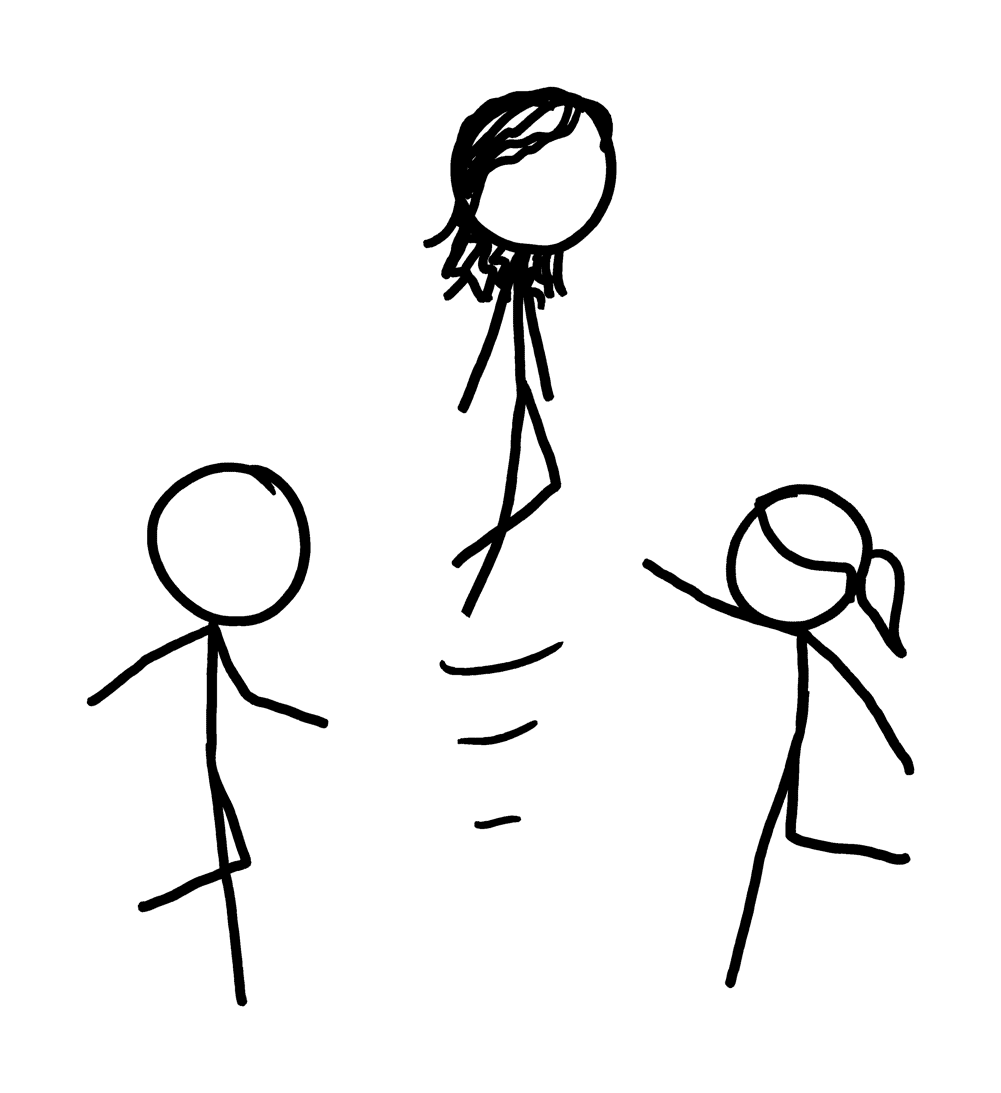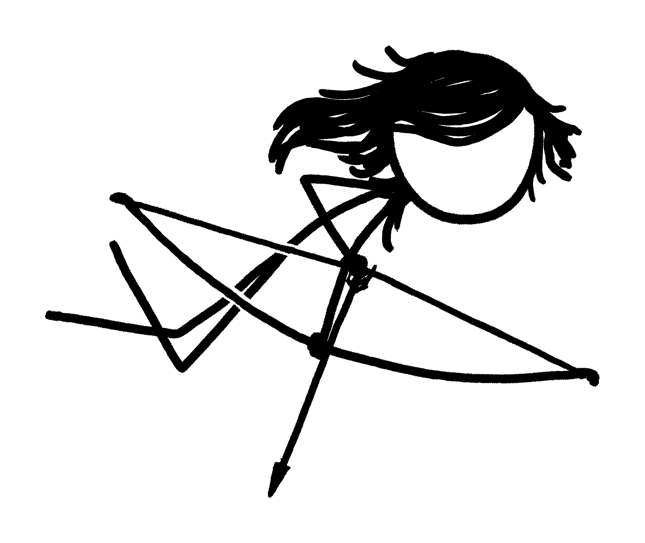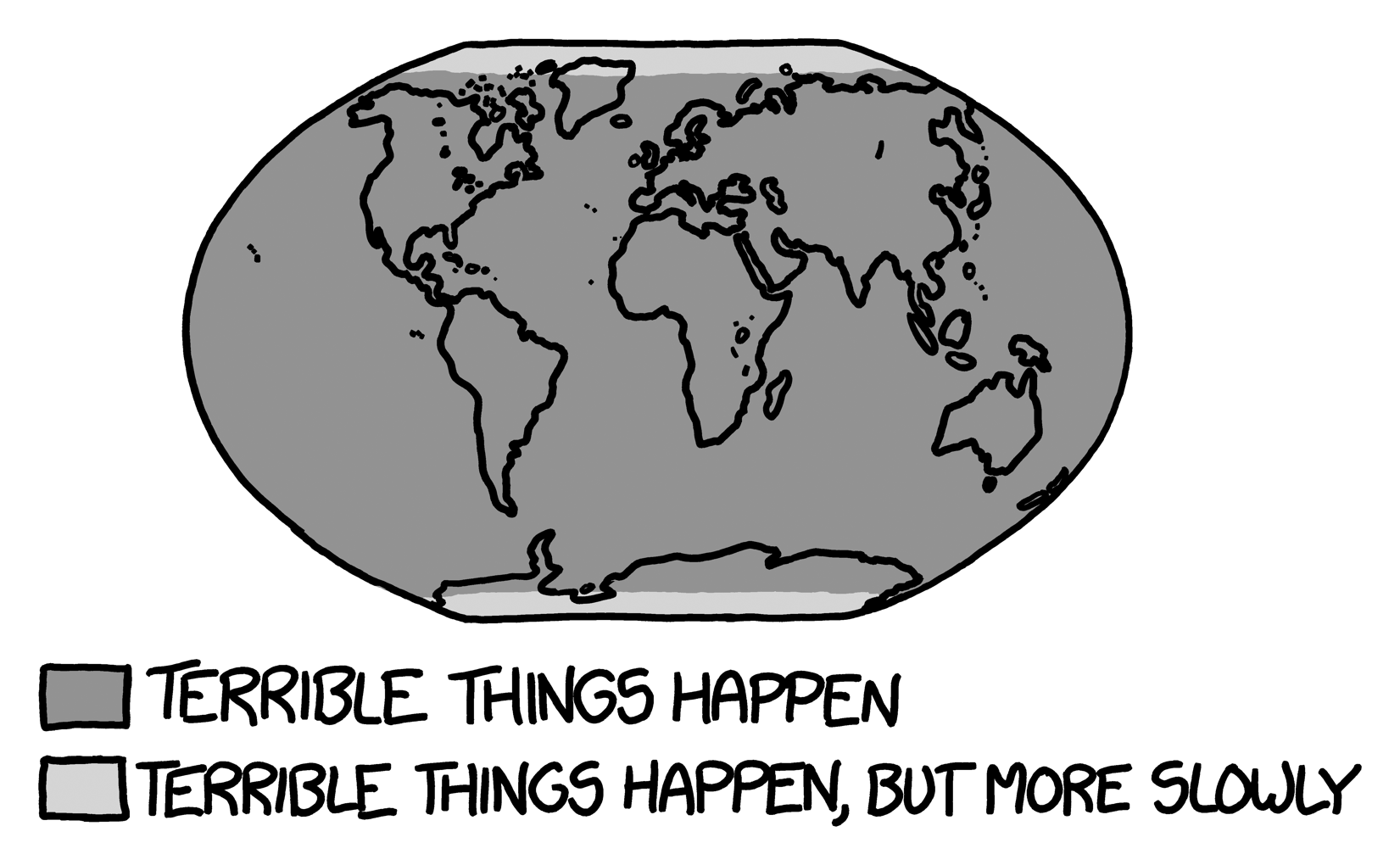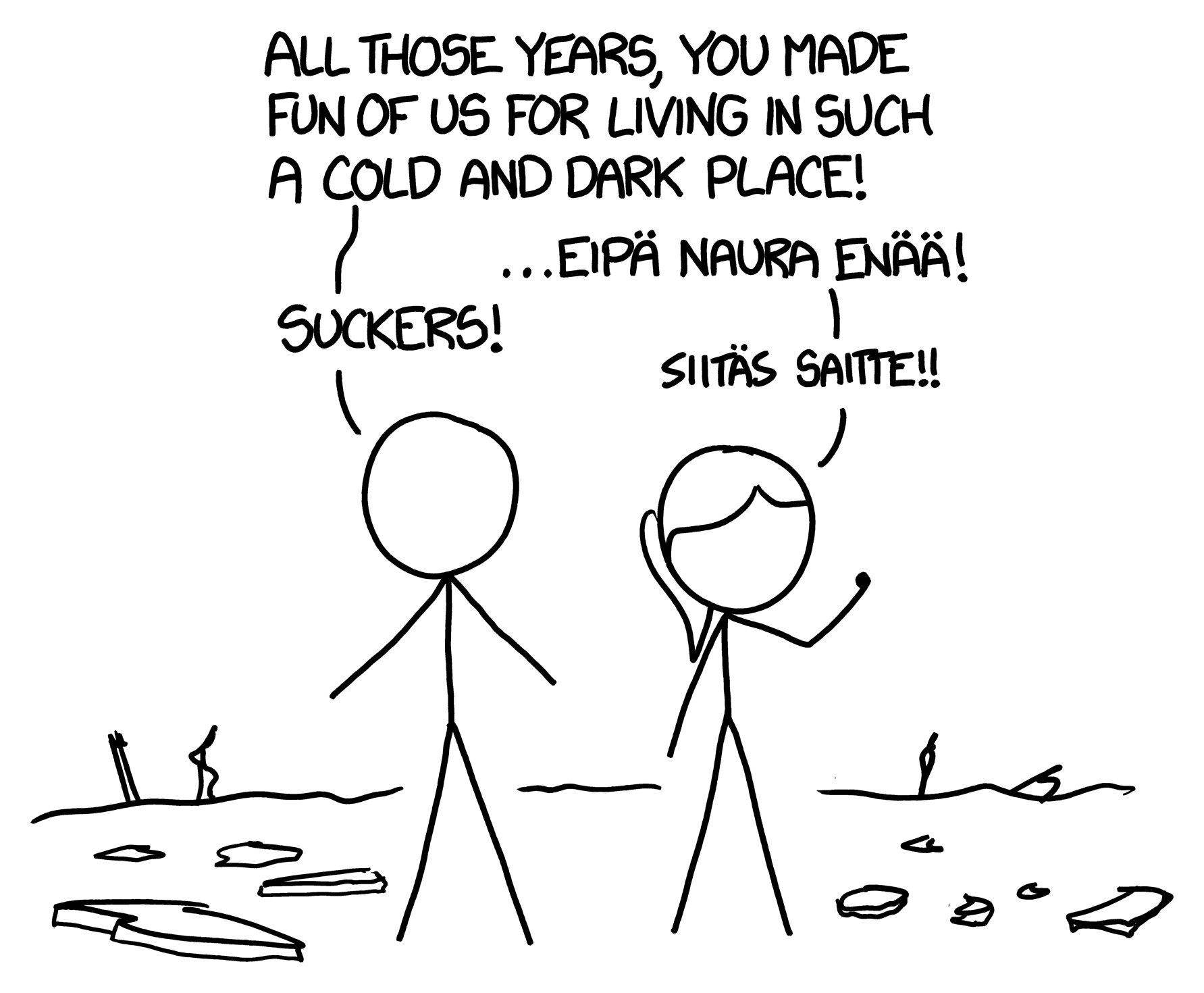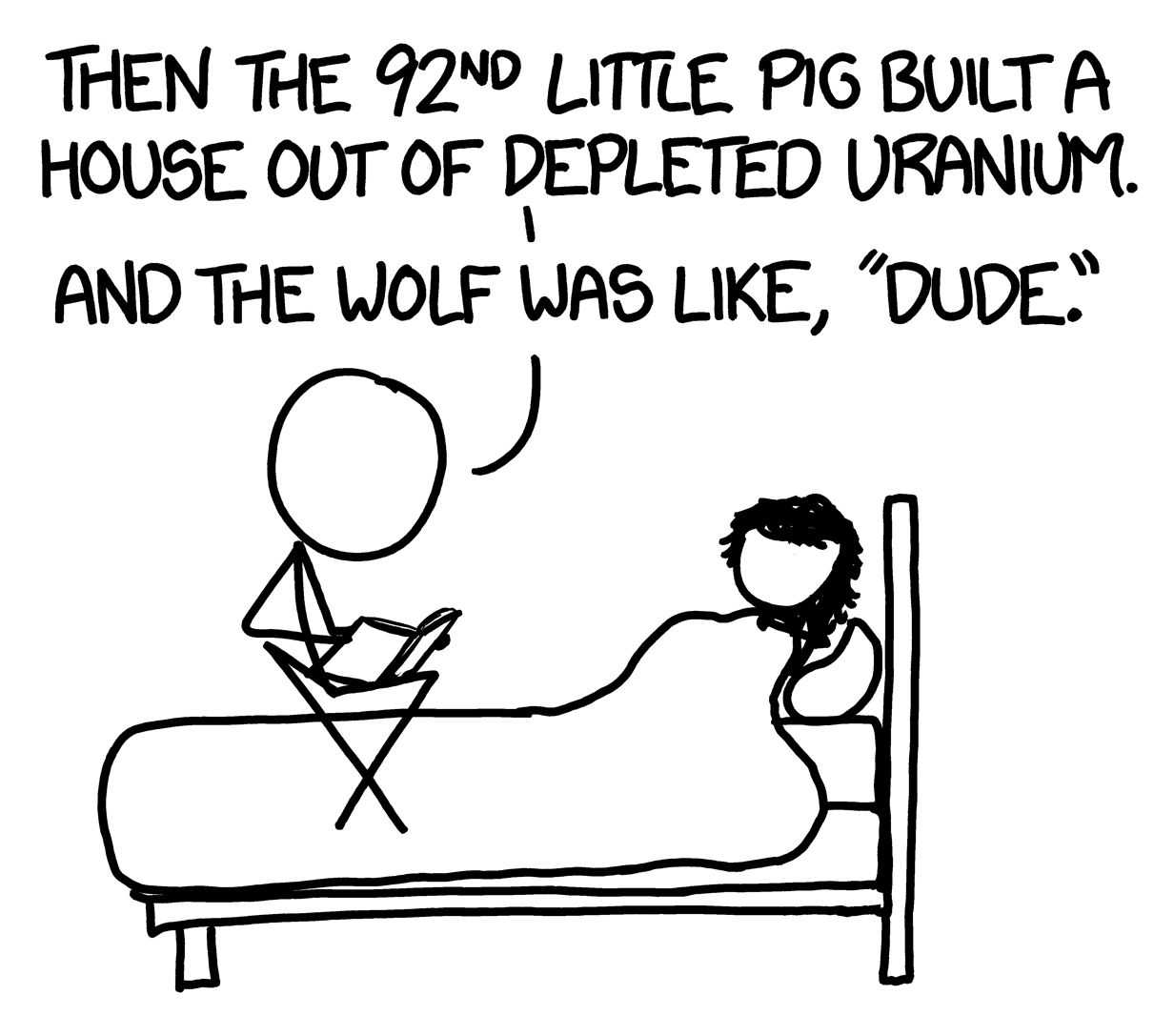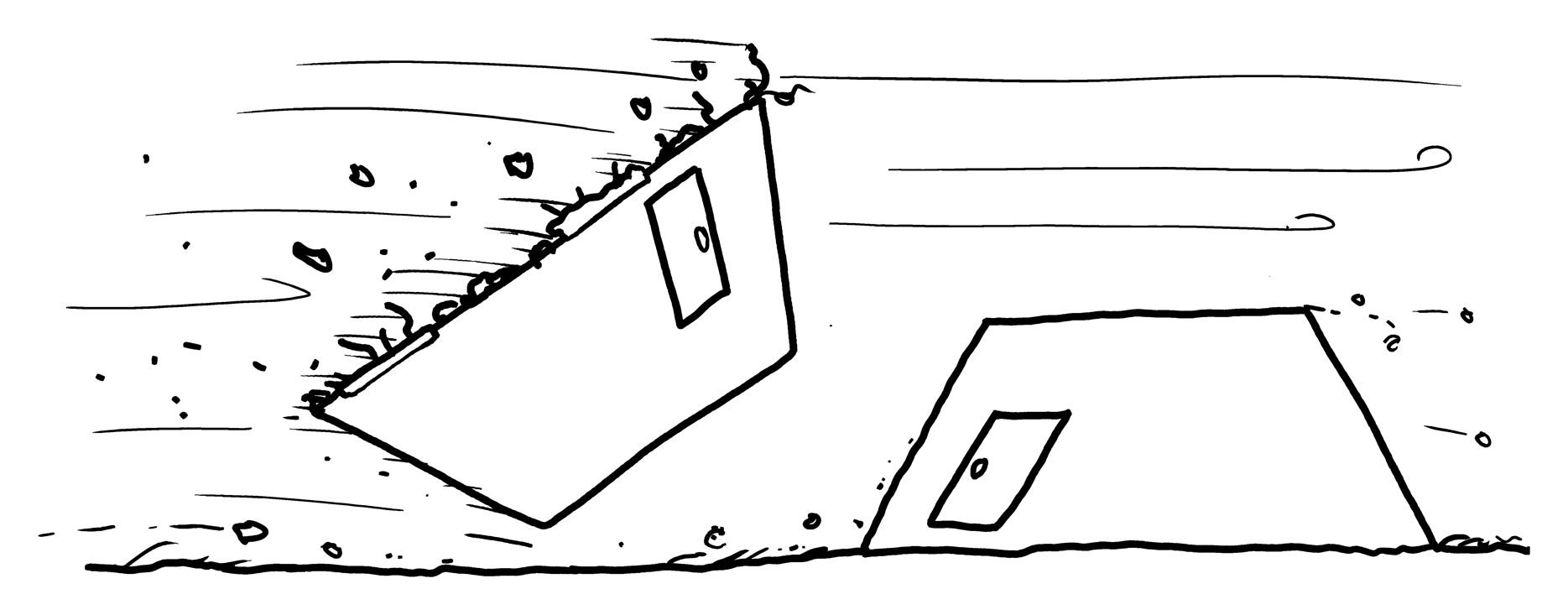
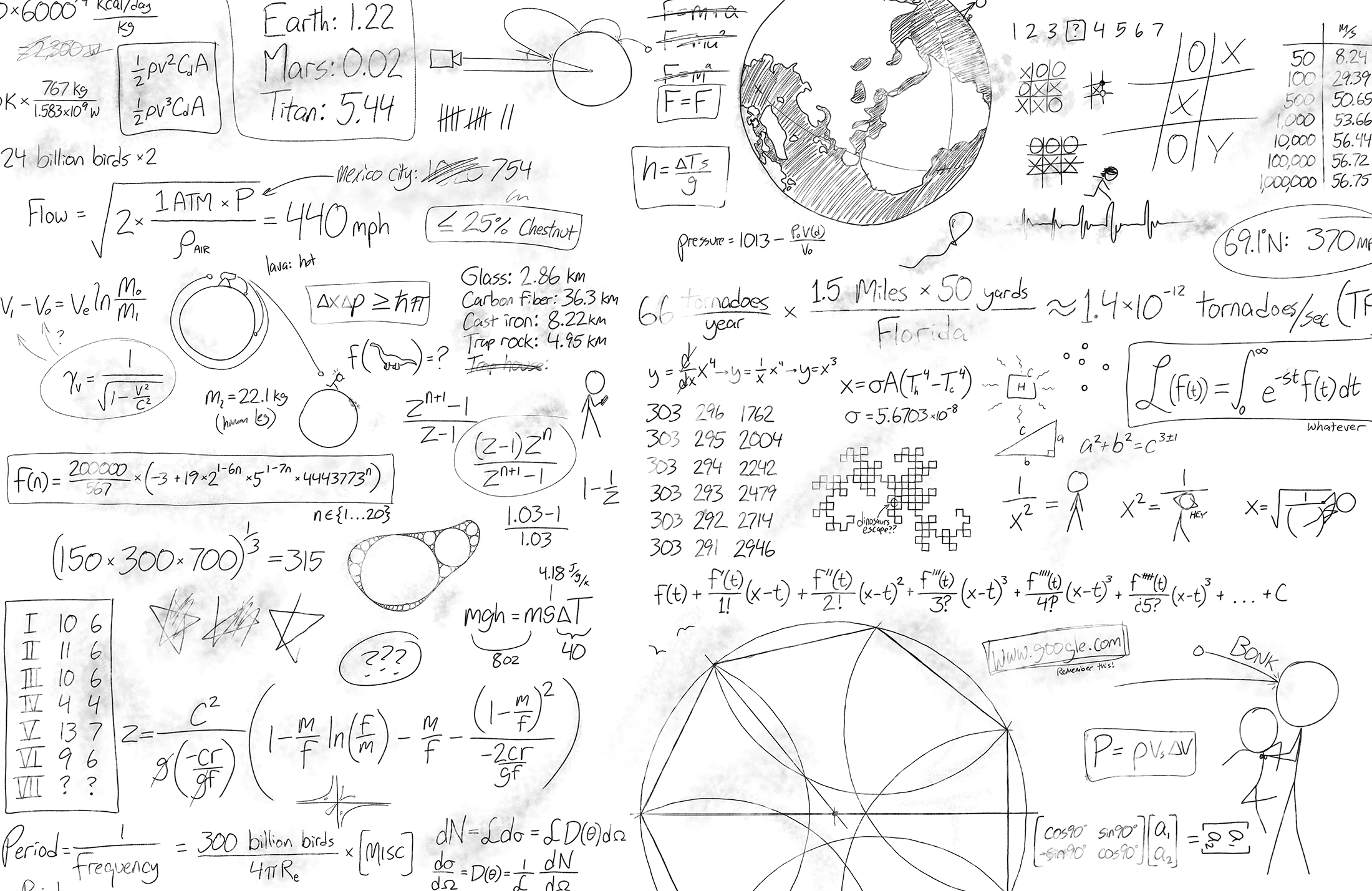
what if?
Serious Scientific Answers to Absurd Hypothetical Questions
RANDALL MUNROE
HOUGHTON MIFFLIN HARCOURT
2014 BOSTON NEW YORK
Copyright 2014 by xkcd Inc.
all rights reserved
For information about permission to reproduce selections from this book, write to Permissions, Houghton Mifflin Harcourt Publishing Company, 215 Park Avenue South, New York, New York 10003.
www.hmhco.com
The Library of Congress has cataloged the print edition as follows:
Munroe, Randall, author.
What if? : serious scientific answers to absurd hypothetical questions / Randall Munroe.
pages cm
isbn 978-0-544-27299-6 (hardback)
isbn 978-0-544-45686-0 (international pbk.)
1. ScienceMiscellanea. I. Title.
q173.m965 2014
500dc23
2014016311
Book design by Christina Gleason
Lyrics from If I Didnt Have You 2011 by Tim Minchin.
Reprinted by permission of Tim Minchin.
e isbn 978-0-544-27264-4
v 5.0914
Questions
Disclaimer
Do not try any of this at home. The author of this book is an Internet cartoonist, not a health or safety expert. He likes it when things catch fire or explode, which means he does not have your best interests in mind. The publisher and the author disclaim responsibility for any adverse effects resulting, directly or indirectly, from information contained in this book.
Introduction
This book is a collection of answers to hypothetical questions.
These questions were submitted to me through my website, wherein addition to serving as a sort of Dear Abby for mad scientistsI draw xkcd, a stick-figure webcomic.
I didnt start out making comics. I went to school for physics, and after graduating, I worked on robotics at NASA . I eventually left NASA to draw comics full-time, but my interest in science and math didnt fade. Eventually, it found a new outlet: answering the Internets weirdand sometimes worryingquestions. This book contains a selection of my favorite answers from my website, plus a bunch of new questions answered here for the first time.
Ive been using math to try to answer weird questions for as long as I can remember. When I was five years old, my mother had a conversation with me that she wrote down and saved in a photo album. When she heard I was writing this book, she found the transcript and sent it to me. Here it is, reproduced verbatim from her 25-year-old sheet of paper:
Randall: Are there more soft things or hard things in our house?
Julie: I dont know.
Randall: How about in the world?
Julie: I dont know.
Randall: Well, each house has three or four pillows, right?
Julie: Right.
Randall: And each house has about 15 magnets, right?
Julie: I guess.
Randall: So 15 plus 3 or 4, lets say 4, is 19, right?
Julie: Right.
Randall: So there are probably about 3 billion soft things, and... 5 billion hard things. Well, which one wins?
Julie: I guess hard things.
To this day I have no idea where I got 3 billion and 5 billion from. Clearly, I didnt really get how numbers worked.
My math has gotten a little better over the years, but my reason for doing math is the same as it was when I was five: I want to answer questions.
They say there are no stupid questions. Thats obviously wrong; I think my question about hard and soft things, for example, is pretty stupid. But it turns out that trying to thoroughly answer a stupid question can take you to some pretty interesting places.
I still dont know whether there are more hard or soft things in the world, but Ive learned a lot of other stuff along the way. What follows are my favorite parts of that journey.
randall munroe
what if?
Global Windstorm
Q. What would happen if the Earth and all terrestrial objects suddenly stopped spinning, but the atmosphere retained its velocity?
Andrew Brown
A. Nearly everyone would die. Then things would get interesting.
At the equator, the Earths surface is moving at about 470 meters per seconda little over a thousand miles per hourrelative to its axis. If the Earth stopped and the air didnt, the result would be a sudden thousand-mile-per-hour wind.
The wind would be highest at the equator, but everyone and everything living between 42 degrees north and 42 degrees southwhich includes about 85 percent of the worlds populationwould suddenly experience supersonic winds.
The highest winds would last for only a few minutes near the surface; friction with the ground would slow them down. However, those few minutes would be long enough to reduce virtually all human structures to ruins.
My home in Boston is far enough north to be just barely outside the supersonic wind zone, but the winds there would still be twice as strong as those in the most powerful tornadoes. Buildings, from sheds to skyscrapers, would be smashed flat, torn from their foundations, and sent tumbling across the landscape.
Winds would be lower near the poles, but no human cities are far enough from the equator to escape devastation. Longyearbyen, on the island of Svalbard in Norwaythe highest-latitude city on the planetwould be devastated by winds equal to those in the planets strongest tropical cyclones.
If youre going to wait it out, one of the best places to do it might be Helsinki, Finland. While its high latitudeabove 60Nwouldnt be enough to keep it from being scoured clean by the winds, the bedrock below Helsinki contains a sophisticated network of tunnels, along with a subterranean shopping mall, hockey rink, swimming complex, and more.
No buildings would be safe; even structures strong enough to survive the winds would be in trouble. As comedian Ron White said about hurricanes, Its not that the wind is blowing, its what the wind is blowing.
Say youre in a massive bunker made out of some material that can withstand thousand-mile-per-hour winds.
Thats good, and youd be fine... if you were the only one with a bunker. Unfortunately, you probably have neighbors, and if the neighbor upwind of you has a less-well-anchored bunker, your bunker will have to withstand a thousand-mile-per-hour impact by their bunker.
The human race wouldnt go extinct. In general, very few people above the surface would survive; the flying debris would pulverize anything that wasnt nuclear-hardened. However, a lot of people below the surface of the ground would survive just fine. If you were in a deep basement (or, better yet, a subway tunnel) when it happened, you would stand a good chance of surviving.

